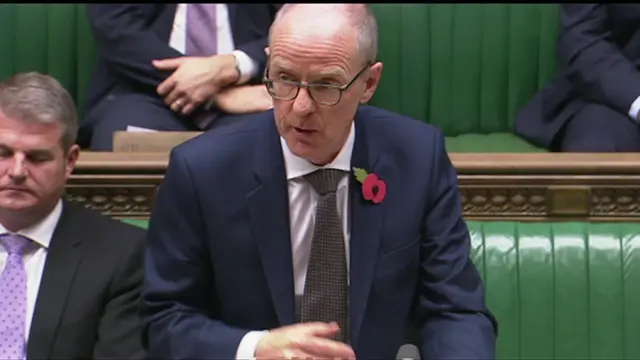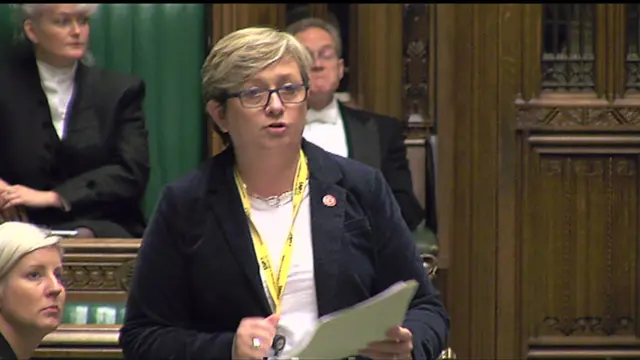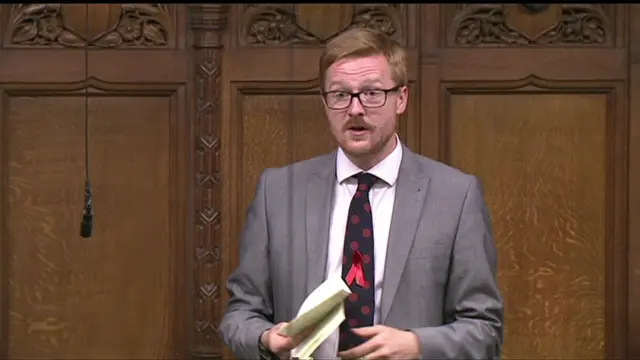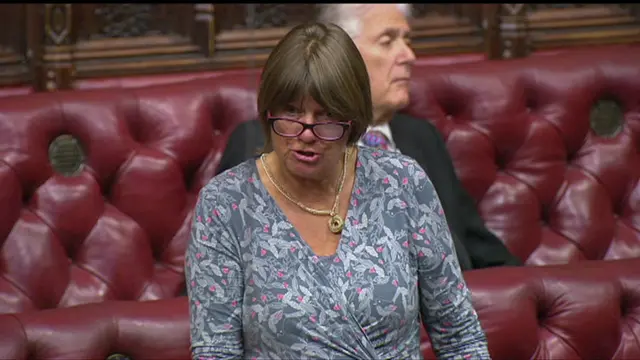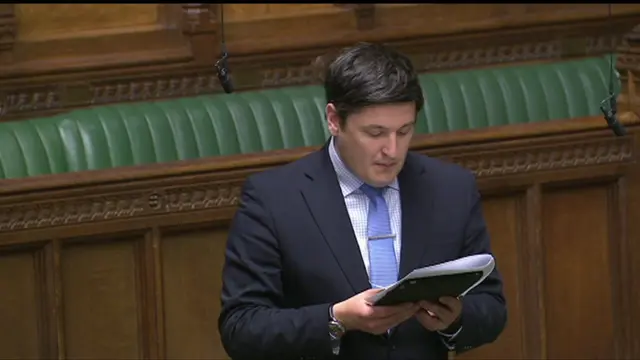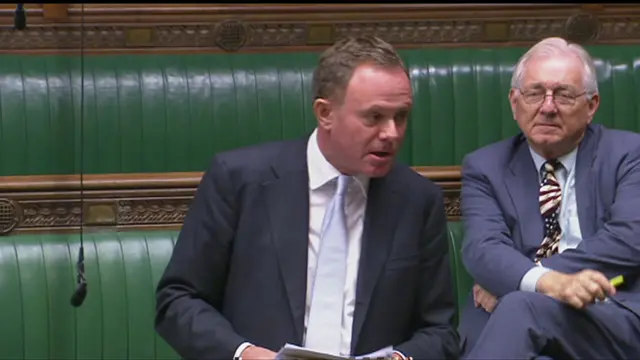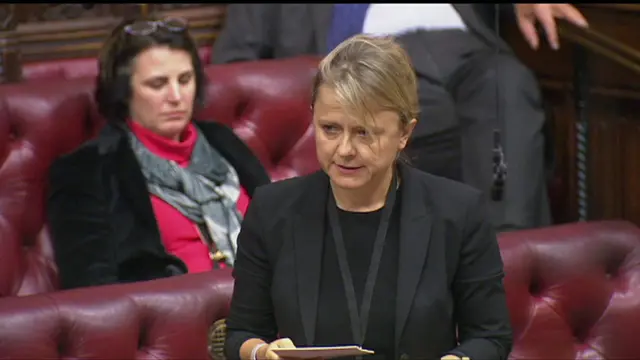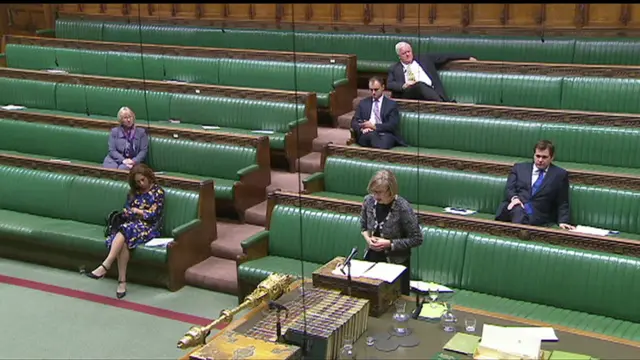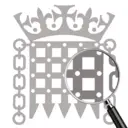Summary: Tory MP assures Davis rebels 'deadly serious'published at 17:48 BST 26 October 2017
Urgent question on Brexit vote
 House of Commons
House of Commons
Parliament
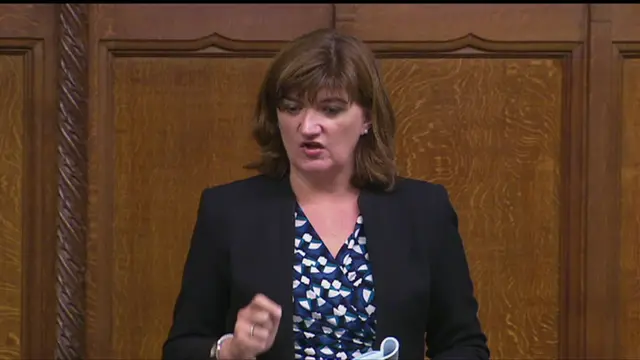 Image source, hoc
Image source, hocConservative MP Nicky Morgan has told Brexit Secretary David Davis that Tory MPs who support an amendment requiring a final Brexit deal to be approved by Parliament are "deadly serious".
She says the government should accept amendment 7 to the EU Withdrawal Bill, which is in the name of the former attorney general Dominic Grieve.
David Davis told MPs he won't pre-empt the discussion on the bill but those reports [that the rebel Tory MPs are not being taken seriously] are not true.
Mr Davis was answering an urgent question in the Commons about when Parliament might vote on a deal with the EU.

